
The curtain has fallen on one of the most unpredictable and competitive regular seasons in recent memory. The playoff picture is set, but before we turn the page, there’s one last debate worth having: the end-of-season awards.
Nikola Jokic has a chance to join Mount Rushmore status with his fourth MVP in five years, but Shai Gilgeous-Alexander made sure it wasn’t a coronation. Meanwhile, Rookie of the Year is a two-man sprint to the finish, Defensive Player of the Year could go in three directions, and Most Improved feels like an easy choice. Let’s go through the final predictions for NBA awards in the 2024-25 season.
Most Valuable Player
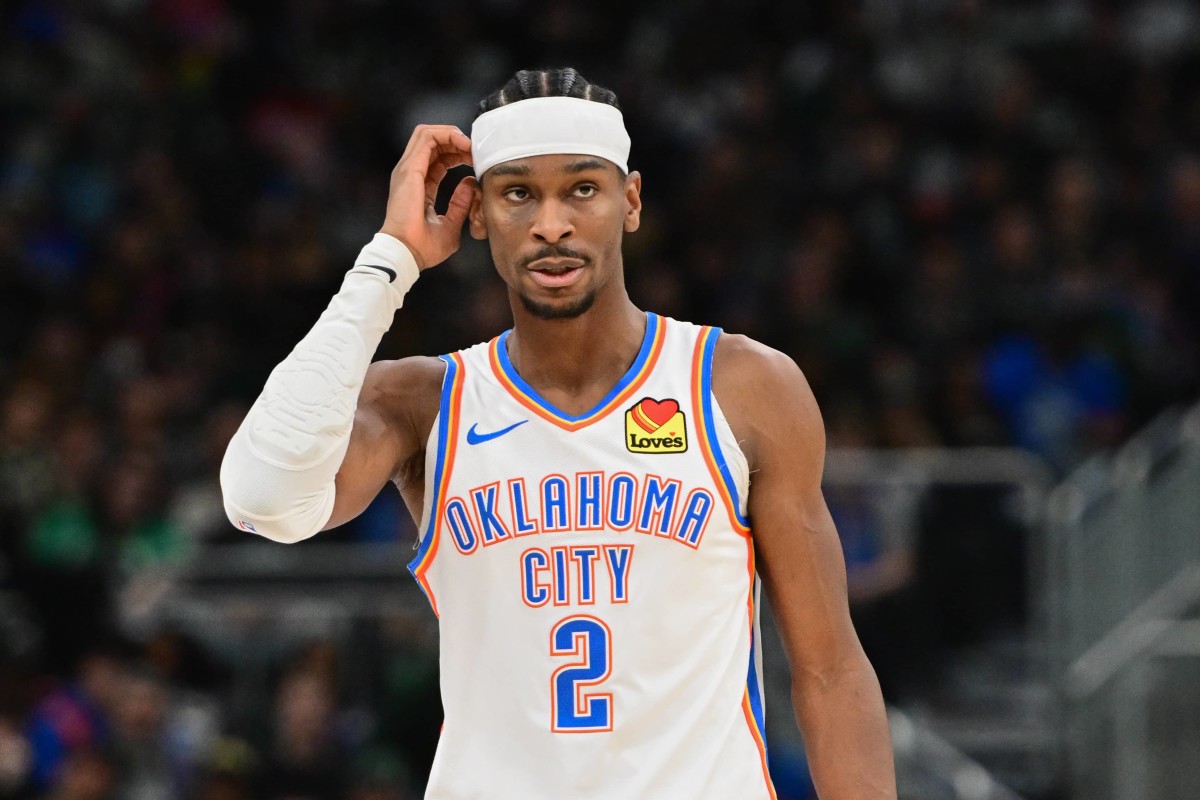
Final Predictions For The Most Valuable Player Award:
1. Shai Gilgeous-Alexander
2. Nikola Jokic
3. Giannis Antetokounmpo
4. Jayson Tatum
5. Karl-Anthony Towns
Shai had an iconic season for the Thunder, blowing through defenses and propelling OKC to a league-best 68-14 record. He finished the season averaging 32.7 points, 5.0 rebounds, 6.4 assists, and 1.7 steals per game on elite 51.9% shooting from the field. His blend of efficiency, scoring volume, and two-way impact gave him the edge in a razor-thin race with Jokic. With the Thunder exceeding all preseason expectations, this felt like Shai’s coronation year.
Jokic once again played like a basketball savant, averaging a triple-double with 29.6 points, 12.7 rebounds, and 10.2 assists while shooting 57.6% from the floor. His steady hand guided Denver to a turbulent but solid 50-win season, and he made it all look easy. But this time around, team success and the emergence of Shai nudged him into second place. Still, a fourth MVP would’ve been well deserved—he’s that dominant.
Despite some early turbulence in Milwaukee and later on with Damian Lillard missing time, Giannis Antetokounmpo was an absolute wrecking ball again: 30.4 points, 11.9 boards, 6.5 assists, and 1.2 blocks per game while shooting a ridiculous 60.1% from the field. He was the most physically imposing force in the league, but the Bucks’ inconsistencies, including a shaky finish and coaching changes, hurt his case.
Jayson Tatum turned in his most complete season yet, leading Boston to 61 wins while putting up 26.8 points, 8.7 rebounds, and 6.0 assists per game. He anchored one of the league’s best two-way teams and looked increasingly comfortable being “the guy” on a championship contender. The Celtics were a machine, but Tatum’s stellar numbers didn’t quite pop like Shai’s or Jokic’s. Still, a top-five MVP finish feels like the new norm for JT.
The Knicks struck gold with Towns. He averaged 24.4 points, 12.8 rebounds, and shot a scorching 42.0% from three as the face of a resurgent New York team that won 51 games and captured the city’s imagination as the 3rd seed. This was easily the most mature and impactful version of KAT we’ve seen—less noise, more dominance. His improved defense and leadership helped him earn his highest MVP finish yet.
Rookie Of The Year
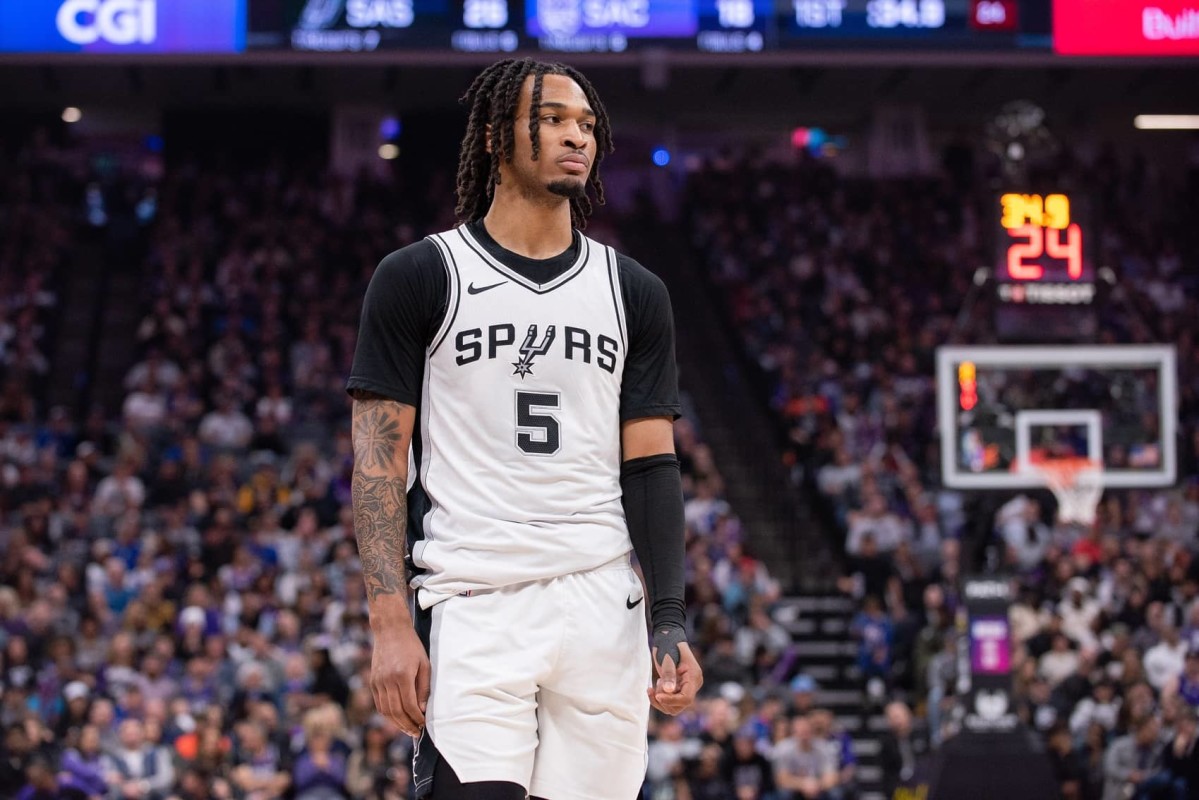
Final Predictions For The Rookie Of The Year Award:
1. Stephon Castle
2. Zaccharie Risacher
3. Zach Edey
4. Jaylen Wells
5. Kel’el Ware
Stephon Castle hit the ground running in San Antonio, averaging 14.7 points, 4.1 assists, 3.7 rebounds, and 0.9 steals per game. His two-way impact, especially on a Spurs team that overachieved late in the season, made him the heartbeat of the rookie class. In a tight race, Castle’s all-around consistency and impact gave him the edge.
Risacher flashed strong potential throughout the year, putting up 12.6 points, 3.6 rebounds, and 0.7 steals per game while shooting an efficient 45.8% from the floor and 35.5% from deep. His size on the wing and three-level scoring made him a key piece for Atlanta's rebuilding foundation. Had Castle not been as consistent defensively, Zaccharie could’ve easily walked away with the hardware.
Edey silenced critics who questioned his NBA fit, averaging 9.2 points, 8.3 rebounds, and 1.3 blocks in just 21.5 minutes per game. His presence in the paint helped stabilize a depleted Memphis frontcourt and added a layer of toughness to their interior defense. He wasn’t flashy, but his impact was undeniable.
Wells emerged as a scoring spark for the Grizzlies, averaging 10.4 points per game on 42.5% shooting and 35.2% from three. On a team with a decent team record (48-38), Wells showcased elite shot creation and a smooth stroke that had scouts raving. With more playmaking reps, he might be a breakout candidate heading into next year.
Ware brought much-needed interior athleticism to Charlotte, contributing 9.3 points, 7.4 rebounds, and 1.1 blocks per game while shooting 55.4%. He was a bright spot in an otherwise chaotic Hornets season, anchoring the paint and running the floor with fluidity.
Defensive Player Of The Year
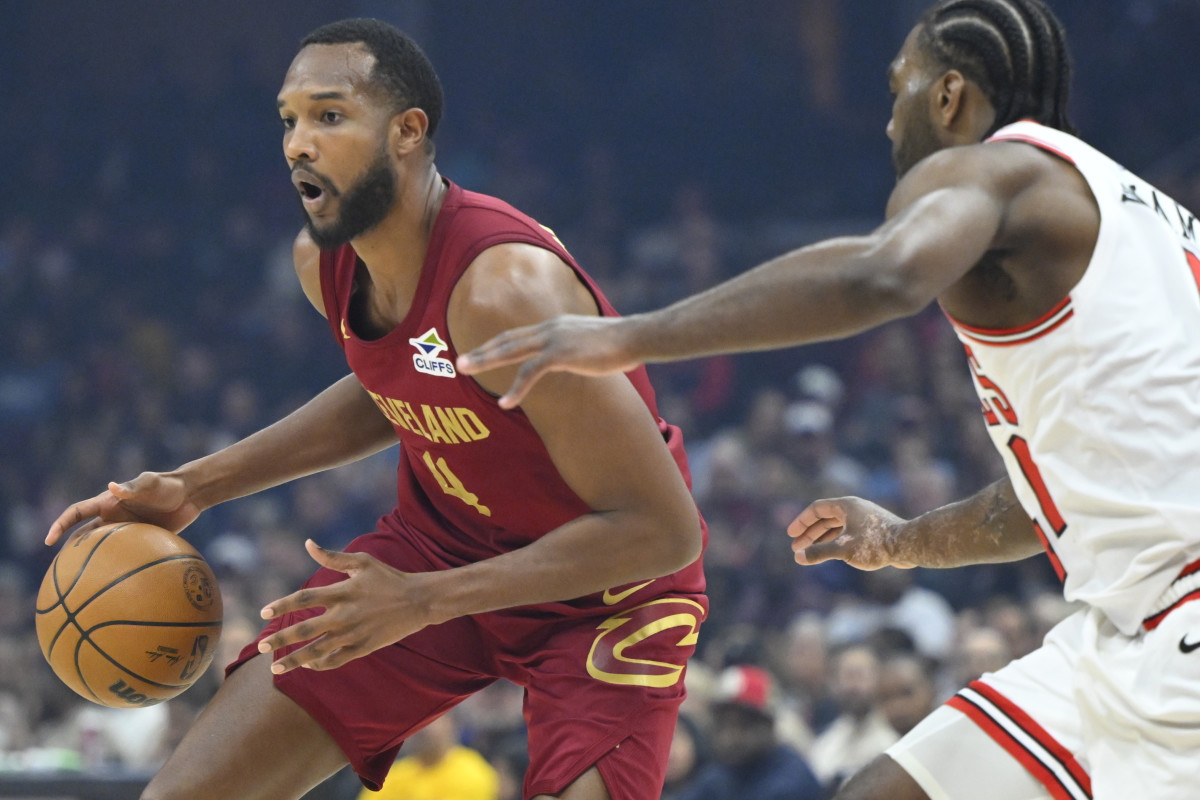
Final Predictions For The Defensive Player Of The Year Award:
1. Evan Mobley
2. Draymond Green
3. Luguentz Dort
4. Dyson Daniels
5. Jaren Jackson Jr.
Evan Mobley put together a masterclass defensive campaign, averaging 1.6 blocks, 0.9 steals, and anchoring the 8th-best defense. His mobility and ability to guard all five positions separated him from the field. Whether switching onto guards or rotating to help at the rim, Mobley’s timing and instincts were elite. He’s officially moved into the conversation of one of the best defenders in the NBA across the board.
Draymond Green had a renaissance season defensively, averaging 1.5 steals, 1.0 blocks, and quarterbacking Golden State’s defense back into the top 10. His basketball IQ and communication remain unmatched, and he consistently elevated his teammates on that end. At age 35, he still brought fire and versatility. Love him or hate him, his defensive value was never in doubt.
Dort was the perimeter pitbull for a Thunder team that ranked 1st defensively (107.5 defensive rating) all season. He averaged 1.1 steals per game while routinely guarding the best scorers in the league—and making their nights miserable. His strength, lateral quickness, and fearlessness were essential to OKC’s identity. He wasn’t just a stopper—he was a tone-setter.
Daniels quietly became one of the league’s best wing defenders, posting a league-leading 3.0 steals and 0.7 blocks per game while guarding both guards and forwards. His instincts, length, and ability to create chaos off-ball helped the Pelicans string together one of their best defensive seasons in years. Daniels didn’t get the spotlight, but his film speaks volumes.
The 2023 DPOY remained a defensive anchor, averaging 1.5 blocks per game and continuing to stretch the floor as a big. While Memphis battled injuries, JJJ was the constant, disrupting plays at the rim and switching onto wings with ease. His shot-blocking timing remains among the league’s best. Even in a difficult year for the Grizzlies, Jackson’s presence loomed large.
Sixth Man Of The Year
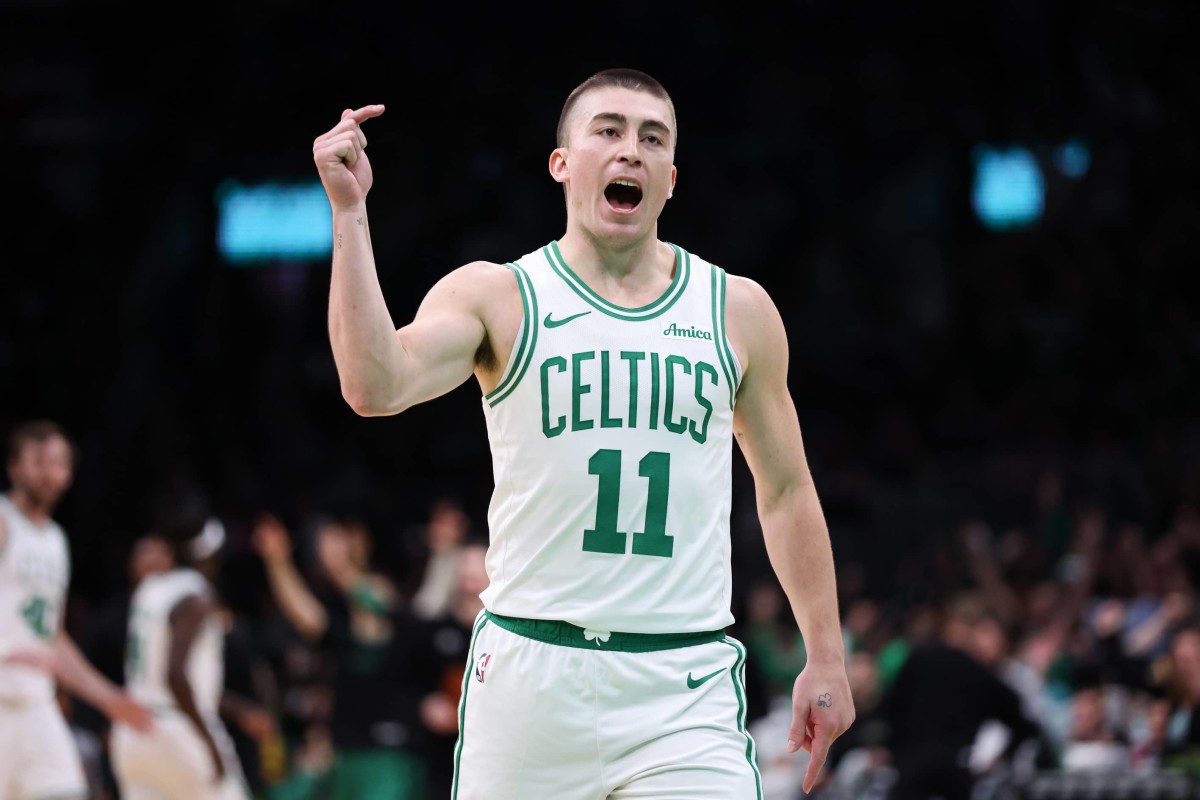
Final Predictions For The Sixth Man Of The Year Award:
1. Payton Pritchard
2. Malik Beasley
3. Russell Westbrook
4. De’Andre Hunter
5. Ty Jerome
Payton Pritchard made the leap this season, averaging 14.3 points, 3.5 assists, and 40.7% from three off the bench for the NBA’s 3rd-best regular-season team in terms of record. His shooting, pace, and decision-making brought a spark every time he stepped on the floor. Boston leaned on him to run the second unit, and he delivered with consistency.
Beasley was one of the league’s best flamethrowers off the bench, dropping 16.3 points per game while shooting 41.6% from three on high volume. He gave the Pistons a needed floor-spacer and was one of the best shooters this season, finishing second in total threes made behind Anthony Edwards.
Russ accepted his bench role with grace for the Nuggets and thrived, posting 13.3 points, 6.1 assists, and 4.9 rebounds per game in just under 28 minutes. He brought relentless energy and pace, constantly attacking downhill and making plays for others. This version of Russ proved you can still impact the game without needing 35 minutes a night, but he was a part of another coach firing yet again.
Hunter brought veteran stability to Atlanta’s bench and to the Cavaliers after the pre-deadline day trade, averaging 17.0 points and 4.0 rebounds on 47.0% shooting. He was often tasked with guarding the opposing team's top forward and spacing the floor on offense. Time will tell if their pickup of Hunter proves to be the missing piece behind a Finals run.
Jerome stepped up in a surprising way, averaging 12.5 points and 3.4 assists on 51.6% shooting and 43.9% from three. His smart decision-making and timely shot-making helped Cleveland close out tight games. Jerome became a trusted cog in the Cavs’ second unit because even if he wasn’t flashy, he was consistently solid.
Most Improved Player
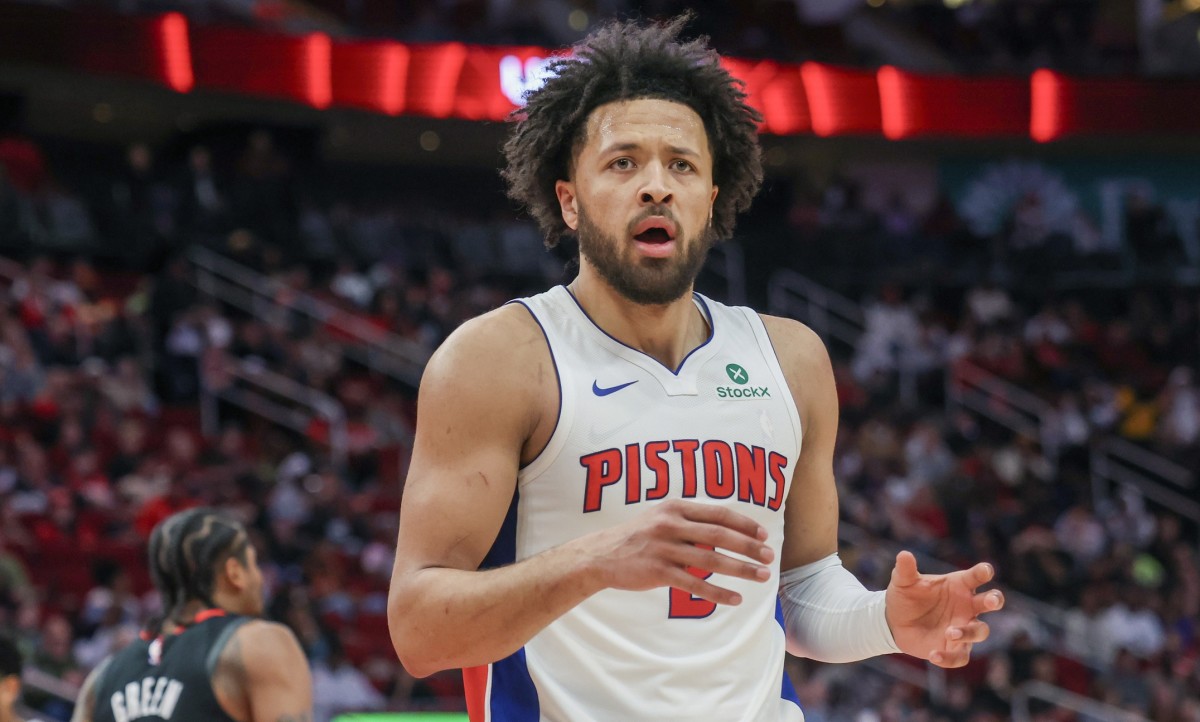
Final Predictions For The Most Improved Player Of The Year Award:
1. Cade Cunningham
2. Dyson Daniels
3. Tyler Herro
4. Christian Braun
5. Evan Mobley
Cade Cunningham finally put it all together. After two injury-riddled seasons and questions about his star ceiling, the 2021 No. 1 pick exploded for 26.1 points, 9.1 assists, and 6.1 rebounds per game while shooting 46.9% from the field and 35.6% from three. His efficiency spike was dramatic, and he looked every bit like the franchise centerpiece Detroit hoped for. More importantly, he elevated a bottom-dwelling Pistons team into a feisty spoiler—and showed he’s ready for the spotlight.
As mentioned earlier, Daniels jumped into the national conversation as one of the best young defenders in the league. The Aussie wing averaged 14.1 points, 5.9 rebounds, 4.4 assists, and 3.0 steals while becoming a defensive Swiss army knife for the Pelicans. His improved shooting (34.0% from three) and off-ball awareness unlocked his versatility on both ends.
Tyler Herro bet on himself this season, and it paid off. After an offseason full of trade speculation, he responded with a career-best year: 23.9 points, 5.2 rebounds, and 5.5 assists per game on 47.2% shooting and a solid 37.5% from deep. He looked more comfortable creating for others, handling the ball in crunch time, and shedding the “just a scorer” label. Herro also made the first All-Star Team selection of his career.
The leap Braun took from hustle guy to reliable two-way contributor was a quiet revelation. He averaged 15.4 points and 5.2 rebounds on 58.0% shooting, all while guarding opposing wings and playing 33.9 minutes a night for a contending Nuggets squad. His confidence on offense, especially attacking closeouts and hitting open threes, grew with every game. Braun went from background piece to core playoff rotation guy.
Mobley’s defensive dominance is well known, but his offensive game finally started to round out in 2024–25. He averaged 18.5 points, 9.3 rebounds, and 1.6 blocks on 55.7% shooting, showcasing improved touch, passing vision, and confidence in the post. While he was already elite defensively, this added offensive value pushed him into true two-way stardom. MIP voters often reward narrative, and Mobley made it clear he’s no longer just a specialist.
Coach Of The Year
Final Predictions For The Coach Of The Year Award:
1. Kenny Atkinson
2. Ime Udoka
3. J.B. Bickerstaff
4. Mark Daigneault
5. J.J. Redick
Atkinson inherited a team that looked like it might be heading for a soft reboot, and instead steered them to the No. 1 seed in the East with 64 wins. His ability to unlock Evan Mobley offensively, manage egos, and develop young talent helped Cleveland become one of the most balanced teams in the league. The Cavs finished top five in both offensive and defensive rating, which speaks to Atkinson’s holistic system. This wasn’t a fluke—it was coaching mastery.
Houston went from a disorganized, rebuilding squad to a playoff-level defensive juggernaut under Udoka. The Rockets finished as the second seed with a 52–30 record, thanks largely to Udoka turning Jalen Green into a disciplined scorer and leading a top-five defense (4th in defensive rating). He brought structure, accountability, and intensity—and the young core thrived in it. Udoka coached a talented group of players, and the players bought in.
Yes, the Pistons believe in Bickerstaff, and the coach was critical to their success as a playoff team this year. He made Cade Cunningham look like a superstar at times, and nobody wants to play Detroit over what could be a competitive first-round series. Bickerstaff's fingerprints were everywhere. It’s rare, but deserved recognition for his pivotal role.
Daigneault continues to be one of the smartest minds in the game, turning a young, quirky Thunder roster into a 68-win force. The offense was flowing, the defense was cohesive, and OKC looked like the most poised under-25 team in league history. It certainly helped to have MVP candidate Shai Gilgeous-Alexander playing like a top-two player in the world, but the head coach will always get his respect when he has the best record in the NBA.
Redick went from podcast host to head coach—and shockingly, he made it work. The Lakers played inspired, connected basketball under his watch, finishing with 50 wins. Giving Redick a player of Luka Doncic's caliber was a brilliant move by Rob Pelinka, and the young coach has managed to handle all the egos consistently.
More must-reads:
- Ja Morant makes guarantee after awful Game 1 loss
- Thunder set record with blowout win over Grizzlies
- The 'NBA postseason three-pointers made leaders' quiz
Breaking News
Customize Your Newsletter
 +
+
Get the latest news and rumors, customized to your favorite sports and teams. Emailed daily. Always free!
